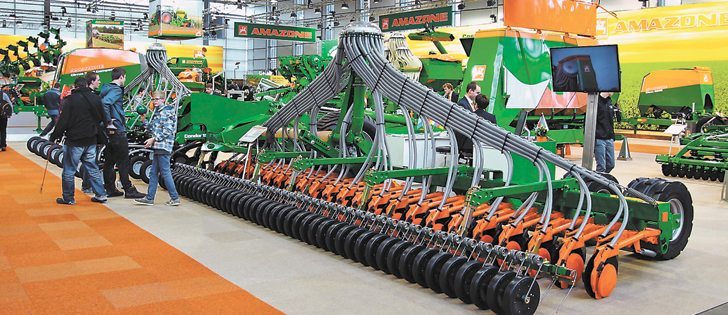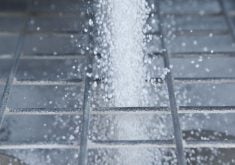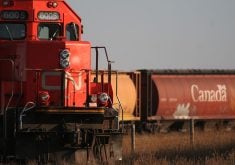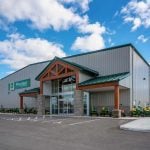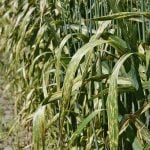GASTE, Germany — Amazone is not a common name in Canada, but the agricultural equipment company has plans to change that situation.
The 130-year-old German company got its start in farm equipment by shipping its first product around the world, and that history has allowed it to pursue markets across the globe ever since.
“But we have tended to look at markets for our equipment that are similar to European farming: high yielding, intensive management of every hectare,” export manager Wilfred Koldehoff said during the Agritechnica farm show in Hanover.
Read Also
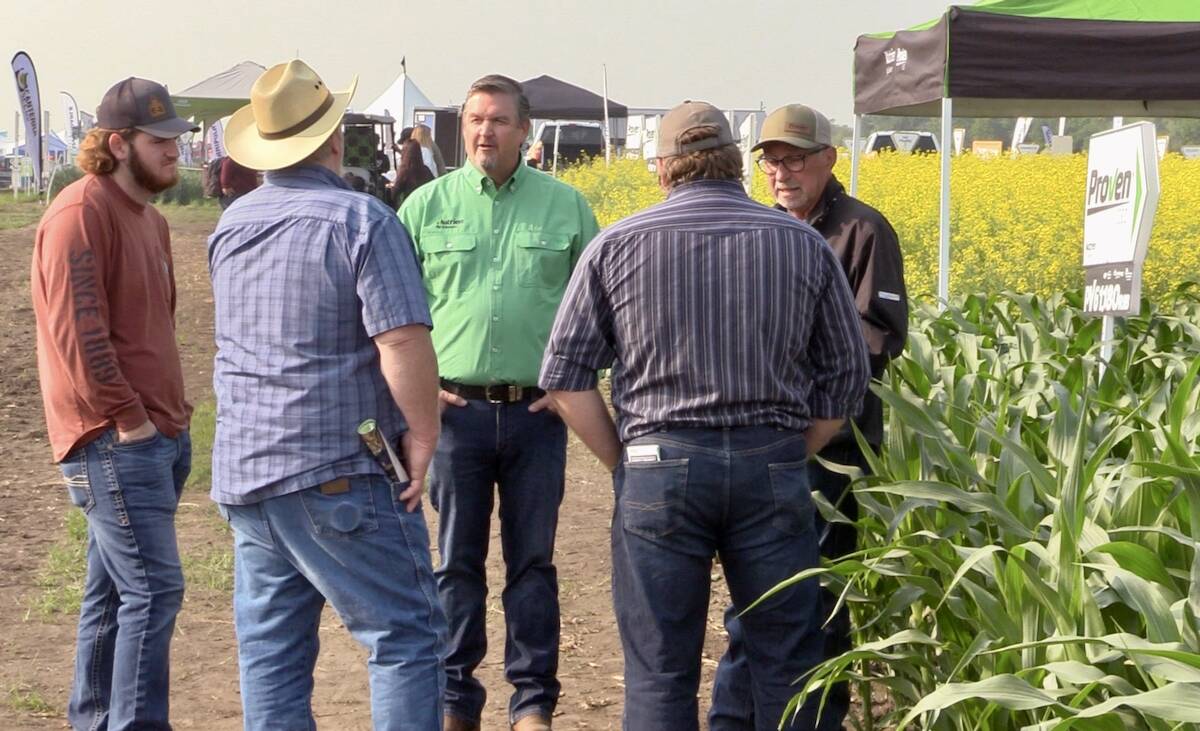
Interest in biological crop inputs continues to grow
It was only a few years ago that interest in alternative methods such as biologicals to boost a crop’s nutrient…
Sven Dutzi, who heads international marketing for the company, said Amazone has changed with the times.
“We have seen changes to our European farming with larger sized farms, and we have had some more recent experience in Eastern Europe and (Russian) agriculture,” Dutzi said.
“Our (machinery) has evolved to meet those markets.”
The company makes spraying, fertilizer application, tillage and seeding equipment, in some cases combining vertical tillage with product metering and air delivery for single pass trash management and seeding.
“The (Amazone) equipment is becoming a better fit for North American agriculture, and agriculture around the world has changed to become more (site specific) and intensively managed,” he said.
Both factors have meant that a company that once built only for higher rainfall, intensively managed European style farming is now building machinery that can compete for farmers’ dollars in Canada, Russia and Australia.
Eighty percent of the company’s machinery is exported, but Klaus Blaffer, a logistics manager at Amazone’s plant in Gaste, said North America is still a new market for the old company.
“Recent improvements in agriculture’s economics mean the company hasn’t had to look further (afield) for new markets, but that doesn’t mean we aren’t. Economics of agriculture means that companies have to spread their products widely, to where there are farmers in need of new tools and able to invest in them,” he said.
“Everything Amazone does is well planned for. It means that farmers always get our high level of customer service along with a piece of machinery. It is a package with us, service, parts and a person to deal with, no exceptions.… But I think this might mean we seem slower to jump into new markets.”
Amazone got its start and its name when a machine from a small town in Germany was taken to a farm show on the other side of the world in Chile.
Heinrich Dreyer built a fanning mill in the late 19th century that allowed farmers and grain merchants to clean their grain for seed and improve its value.
The wooden cased grain cleaner had an advantage over its competition that evidently wasn’t lost on Dreyer. It came in its own box.
The fanning mill could be easily dismantled and was shippable around the world. The Amazone company was born.
A cultivator and a fertilizer spreader with an auger-style metering distributor allowed the company to sell machinery outside its native Germany.
Even in the early years, in times of significant inflation, Dreyer kept money in foreign currency to hedge against variability in domestic and other markets.
“The company has its roots in international sales,” Blaffer said during a tour of Amazone’s home factory.
Like most farm equipment companies, Amazone has done well in recent years, and the family owned business will break its own sales record this year with earnings higher than $710 million.
Koldehoff said the company has recognized the potential of the 60 million acre western Canadian market as well as the U.S. Plains states and has had some farmer demand from the region.
“There are European farmers that have been emigrating to Canada that have taken some of their machinery with them, some of our Amazone seeding and application (tools),” he said.
“Their neighbours see it and they become interested and the transplanted European farmers want to buy bigger and newer units.”
Degelman Industries in Regina imported a vertical tillage tool a few years ago that was met with some success in the North American market.
“It is over, but we learned a lot about the market and now they have their own and they are selling it into Europe,” Koldehoff said.
“This is an international business and now we are looking to expand with more distribution and dealers in the rest of North America.”
The company has a distributor in the U.S. Midwest, Ontario and Quebec, he added.
The company has developed tools for broad acre, prairie style production, including pull-type sprayers up to 2,800 gallons, self propelled machines with booms reaching 120 feet and hoe and disc drills up to 45 feet.
Along with a myriad of other products, the company also builds a precision fertilizer spreader that controls spreader width and rates on the fly.
Dutzi said those sales have to be “hand in hand with service and parts, so that is our challenge. We have the (farm equipment) for the market.”
The family business sticks to the principle of keeping the company operated and held by only two family members at a time.
“It allows Amazone to invest heavily in research and development, about five percent of sales, and in new technology, rather than pulling money out all the time to serve its shareholders,” said Blaffer.
“We have 26 Agritechnica innovation awards in eight shows. We are innovation focused,” he said.
The company has 2,000 employees and operates seven factories: five in Germany and two in France.
“We have corporate objectives, but they are different than many companies,” he said.
“They are about what we can deliver — five percent more yield, 50 percent less fuel and 60 percent reduction in working time — so farmers can farm larger (acreages).”
The company builds more than 1,500 small and mid-sized sprayers annually, including tractor mounted units and 1,400 larger pull type ones. It built 100 of the self propelled high clearance units this year and plans for 250 next year.



